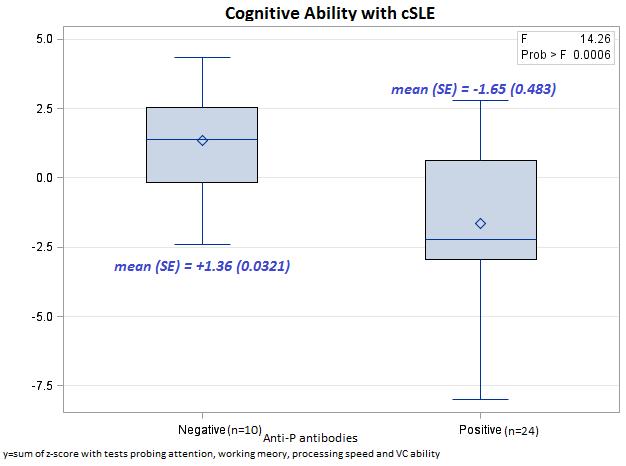Session Information
Session Type: Abstract Submissions (ACR)
Conclusion: Presence of aPL and anti-ribosomal P antibodies in the serum is associated with the level of cognitive ability of children with cSLE, providing proof-of principle that discovery of biomarkers for NPSLE in the blood is feasible. Additional research is necessary to assess whether the duration of antibody exposure and/or the combination of antibodies are suited to reliably identify patients who suffer from cSLE-associated NCD or are at risk of developing it.
Disclosure:
H. Brunner,
None;
J. Hummel,
None;
S. Nelson,
None;
E. C. Thomas,
None;
J. L. Huggins,
None;
M. L. Curran,
None;
J. Ying,
None;
M. S. Klein-Gitelman,
None.
« Back to 2012 ACR/ARHP Annual Meeting
ACR Meeting Abstracts - https://acrabstracts.org/abstract/blood-based-biomarkers-of-neurocognitive-dysfunction-in-childhood-onset-systemic-lupus-erythematosus/

